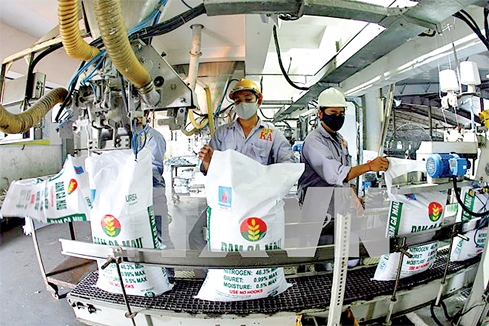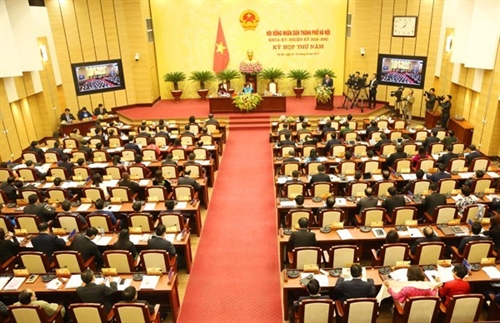With a view to removing existing obstacles to accelerate the equitization of state-owned enterprises (SOEs), the Government on November 22 issued a new decree on transformation of SOEs into joint-stock companies.
 |
| The Government on November 22 issued a new decree on transformation of SOEs into joint-stock companies__Photo: Internet |
Noteworthily, Decree 126/2017/ND-CP, which replaces Decree 59 of 2011, Decree 189 of 2013 and Decree 116 of 2015 from the beginning of 2018, specifies two conditions for equitization of SOEs. First, to-be-equitized enterprises must not be those included in the list of enterprises in which the State needs to hold 100 percent of charter capital, which will be issued by the Prime Minister for each period. Second, the state capital at enterprises after they are financially settled and reevaluated remains positive.
The decree goes on to detail the handling of cases in which the actual value of a to-be-equitized enterprise is lower than its payables. Specifically, if the enterprise is on the list of those in which the State will hold at least 50 percent of shares, the agency representing the state owner at the enterprise must join hands with the Vietnam Debt and Asset Trading Corporation and the enterprise’s creditors to work out a debt purchase and sale plan serving the restructuring of the enterprise. However, if the debt purchase and sale plan is infeasible or ineffective, the enterprise will undergo transformation in another form as prescribed by law. As for other enterprises, the agencies representing the state owner at the enterprises will decide to apply other forms of transformation as appropriate.
The Decree also clarifies three forms of equitizing an SOE, including: (i) retaining the state capital amount at the enterprise and issuing additional stocks to increase charter capital; (ii) selling part of the state capital amount at the enterprise or selling part of the state capital amount at the enterprise together with issuing additional stocks to increase charter capital; and (iii) selling the whole of the state capital amount at the enterprise or selling the whole of the state capital amount at the enterprise together with issuing additional stocks to increase charter capital.
Compared to previous regulations, the Decree imposes strict requirements on the listing of equitized SOEs, saying that enterprises must submit securities listing or registration dossiers right after completing initial public offerings (IPOs). All procedures for securities to be listed on the stock exchanges or traded in the unlisted public company market (UPCoM) must be completed within 90 days after IPOs finish. This means that enterprises will have to prepare documents for depositing their securities at the Vietnam Securities Depository as well as dossiers for securities trading or listing together with their IPO dossiers.
Particularly, enterprises that are equitized in the form of selling part of the state capital amount and currently issuing additional stocks to increase charter capital via public auction or public offering must submit dossiers of registration for securities listing right after the offering completes and notify the result of the offering to the State Securities Commission.
Another salient point of the new decree is the addition of a new method for sale of shares of equitized SOEs. Besides public auction, underwriting and direct negotiation, to-be-equitized enterprises may now choose to apply the method of book building, which is expected to help enterprises and underwriters understand investors’ demands so as to more accurately determine the offer prices.
Commenting on the decree, Dang Quyet Tien, Director of the Ministry of Finance’s Corporate Finance Department, said that for the first time, a decree on equitization featured a closed connection with regulations on listing on the stock market.
“With such clear regulations, enterprises will have no reason to delay listing of securities in the market. Those who fail to comply with the rule will be sanctioned under Decree 145 of 2016 and Decree 108 of 2013 on sanctioning securities-related administrative violations,” Tien added.- (VLLF)









